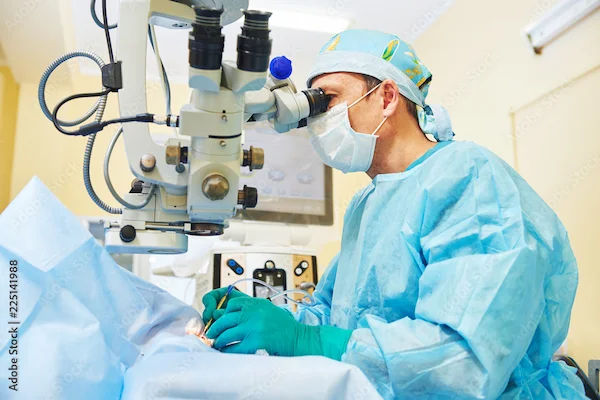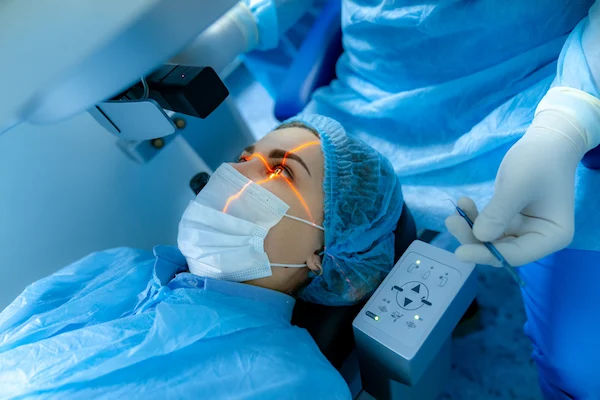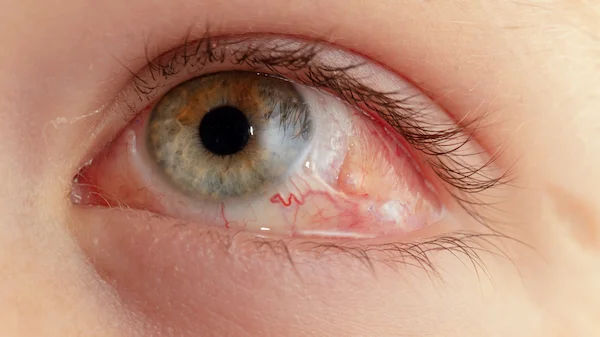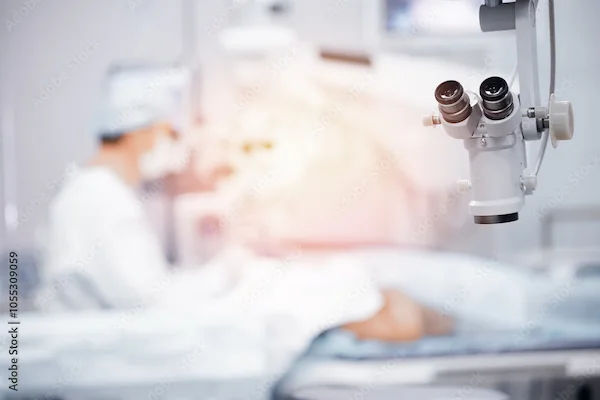What Medications Are Used After Cataract Surgery?
Learn which medications are commonly prescribed after cataract surgery, including antibiotics, anti-inflammatories, and lubricating drops—plus tips for safe usage and recovery.

Written by Dr.Sonia Bhatt
Last updated on 16th Jul, 2025
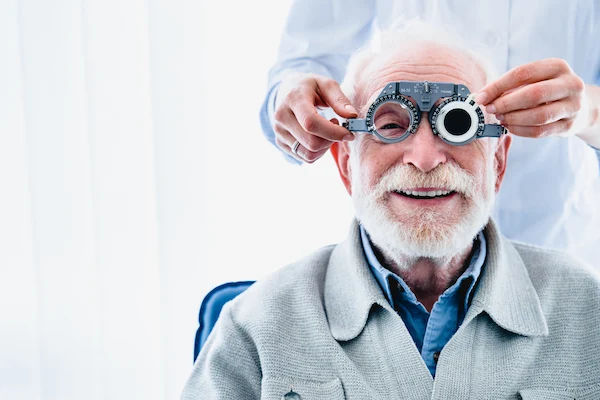
Introduction
Cataract surgery is a common and safe procedure that helps restore clear vision by removing the cloudy lens and replacing it with an artificial one. While the surgery itself is quick and effective, proper post-operative care is crucial for a smooth recovery. One of the most important aspects of recovery is using the right medications to prevent infection, reduce inflammation, and promote healing.
If you or a loved one has recently undergone cataract surgery, you may wonder what medications are needed afterward. This article will guide you through the common medications prescribed, their purpose, and how to use them correctly.
Why Are Medications Needed After Cataract Surgery?
After cataract surgery, your eye needs time to heal. The eye is vulnerable to infections, swelling, and discomfort during this period. Medications help:
Prevent infections – Even a minor infection can lead to complications.
Reduce inflammation – Swelling can slow down healing and cause discomfort.
Control eye pressure – Some patients may need drops to maintain normal eye pressure.
Keep the eye lubricated – Dryness can cause irritation and slow recovery.
Your doctor will prescribe a combination of eye drops and sometimes oral medications to ensure a smooth recovery.
Consult Top Specialists for Personalised Eye Health Advice
Common Medications Prescribed After Cataract Surgery
Here’s a look at the types of medications often recommended after the procedure:
1. Antibiotic Eye Drops
Purpose: Prevent bacterial infections after surgery.
Examples: Moxifloxacin, Gatifloxacin, Ofloxacin.
How to Use: Typically applied 3-4 times a day for about a week.
2. Anti-inflammatory Eye Drops (Steroids)
Purpose: Reduce swelling and inflammation inside the eye.
Examples: Prednisolone, Dexamethasone.
How to Use: Usually prescribed for 2-4 weeks, with the frequency decreasing over time.
3. Non-Steroidal Anti-Inflammatory Drops (NSAIDs)
Purpose: Help with pain and further reduce inflammation.
Examples: Ketorolac, Bromfenac, Nepafenac.
How to Use: Often used along with steroid drops for a few weeks.
4. Lubricating Eye Drops (Artificial Tears)
Purpose: Keep the eye moist and reduce dryness or irritation.
Examples: Systane, Refresh Tears, Thealoz.
How to Use: Can be used as needed, especially if you feel dryness or discomfort.
5. Eye Drops to Control Pressure (If Needed)
Purpose: Some patients may experience increased eye pressure after surgery.
Examples: Timolol, Brimonidine, Dorzolamide.
How to Use: Prescribed only if necessary, usually for a short period.
How to Use Eye Drops Correctly?
Using eye drops properly ensures they work effectively and reduces the risk of contamination. Follow these steps:
1. Wash your hands thoroughly before touching your eyes.
2. Tilt your head back and pull down the lower eyelid to create a small pocket.
3. Hold the dropper close, without touching the eye, and squeeze one drop into the pocket.
4. Close your eye gently for about 30 seconds to let the drop spread.
5. Wait 5 minutes between different eye drops, if using multiple types.
6. Do not rub your eye after applying drops.
If you’re using multiple drops, follow your doctor’s recommended order, which is usually antibiotic first, then anti-inflammatory, then lubricants.
Possible Side Effects of Post-Surgery Medications
Most patients tolerate these medications well, but some may experience:
A brief stinging or burning sensation after application
Temporary blurred vision
Redness or irritation in the eye
If you notice severe pain, vision loss, or signs of an allergic reaction like swelling or rash, contact your doctor immediately.
Tips for a Smooth Recovery
In addition to using medications properly, following a few key guidelines may help speed up recovery and prevent complications:
1. Follow your doctor’s instructions – Use medications exactly as prescribed.
2. Avoid rubbing or pressing on your eye – This can interfere with healing.
3. Wear protective eyewear – Use sunglasses outdoors and an eye shield while sleeping (if recommended).
4. Avoid strenuous activities – Heavy lifting, swimming, or bending over can strain the eye.
5. Keep follow-up appointments – Your doctor will check for healing progress and adjust medications if needed.
When to Call Your Doctor
While complications after cataract surgery are rare, contact your doctor if you experience:
Severe pain that doesn’t improve with medication.
Sudden vision loss or increased blurriness.
Excessive redness, swelling, or discharge.
Flashes of light or new floaters in your vision.
Final Thoughts
Cataract surgery is a highly successful procedure, and using the right medications afterward ensures a smooth recovery. By following your doctor’s instructions and taking prescribed eye drops correctly, you can protect your eye, reduce discomfort, and enjoy clearer vision soon.
If you have any concerns about your medications or recovery, don’t hesitate to reach out to your eye specialist. For expert advice or to schedule a follow-up consultation, you can book an appointment with an ophthalmologist on Apollo 24|7 for personalised care.
Consult Top Eye Specialists
Consult Top Specialists for Personalised Eye Health Advice

Dr. Rajeev Gupta
Ophthalmologist
24 Years • MBBS, MS (Ophthalmology)
Ghaziabad
Om Eye & Gynae Centre, Ghaziabad

Dr. Vyankatesh Pharande
Ophthalmologist
25 Years • MBBS, MS (Ophthalmology )
Pune
PHARANDE EYE HOSPITAL & PHACO CENTER, Pune
Dr. S Venkateswaran
Ophthalmologist
35 Years • MBBS, PGD (OPTHALMOLOGY)
Tiruvannamalai
Shiva Eye And General Hospital, Tiruvannamalai
Dr. Kakarla Roopa
Ophthalmologist
3 Years • MBBS MS Ophthalmology
Tirupati
Anna Gowri Hospital, Tirupati

Dr. Sahiti Salguti
Ophthalmologist
10 Years • MBBS,MS Ophthalmology
Hyderabad
Yeshass Nethralaya eye hospital, Hyderabad
Consult Top Eye Specialists

Dr. Rajeev Gupta
Ophthalmologist
24 Years • MBBS, MS (Ophthalmology)
Ghaziabad
Om Eye & Gynae Centre, Ghaziabad

Dr. Vyankatesh Pharande
Ophthalmologist
25 Years • MBBS, MS (Ophthalmology )
Pune
PHARANDE EYE HOSPITAL & PHACO CENTER, Pune
Dr. S Venkateswaran
Ophthalmologist
35 Years • MBBS, PGD (OPTHALMOLOGY)
Tiruvannamalai
Shiva Eye And General Hospital, Tiruvannamalai
Dr. Kakarla Roopa
Ophthalmologist
3 Years • MBBS MS Ophthalmology
Tirupati
Anna Gowri Hospital, Tirupati

Dr. Sahiti Salguti
Ophthalmologist
10 Years • MBBS,MS Ophthalmology
Hyderabad
Yeshass Nethralaya eye hospital, Hyderabad
